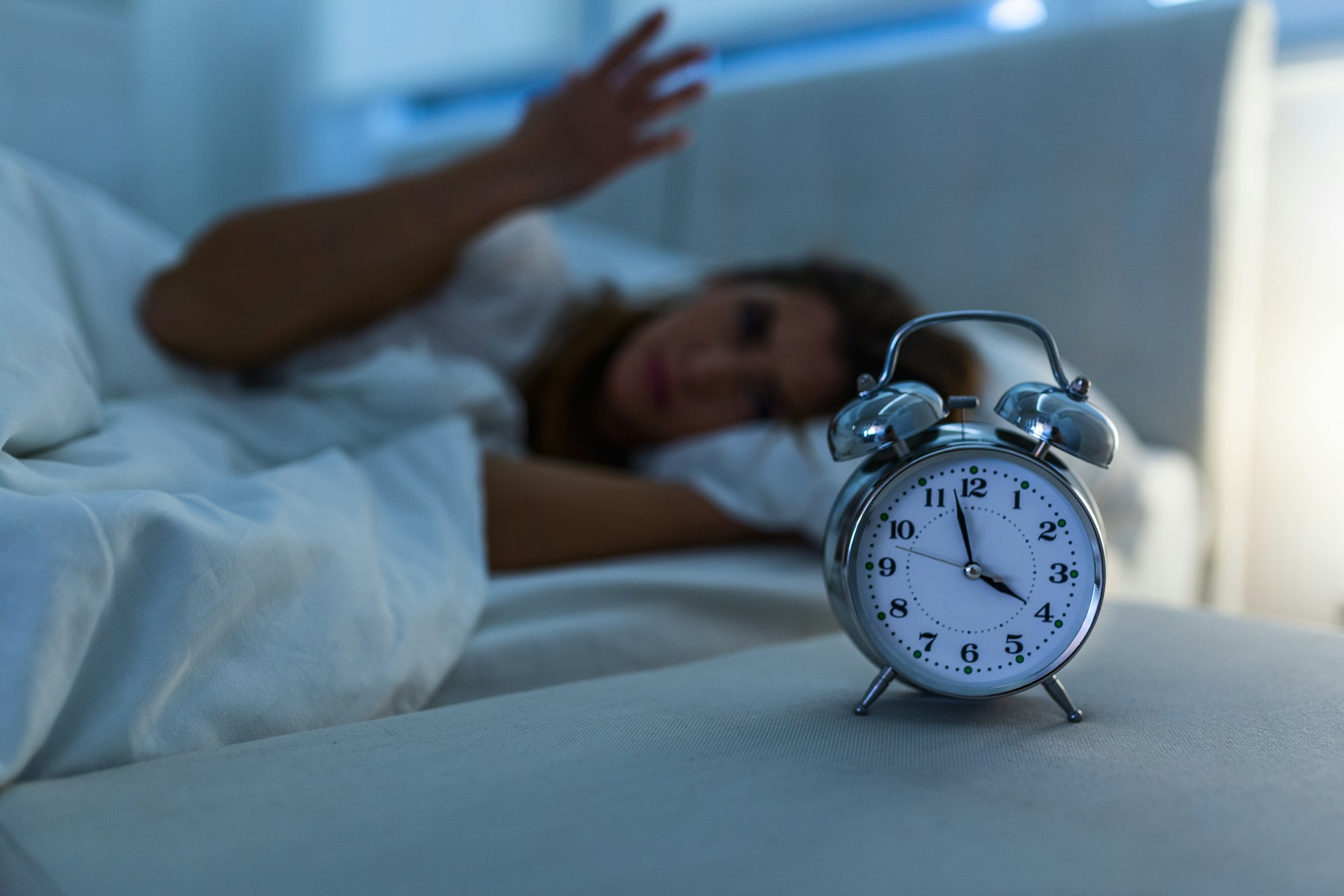If you’ve been tossing and turning through the night, staring at the ceiling while your brain refuses to shut down, you’re not alone. Sleep trouble is something many adults deal with, especially around midlife. But what if your trouble sleeping isn’t because of stress, bad habits, or overthinking? What if your hormones are playing a bigger role than you realize? It’s easy to assume insomnia must be tied to your lifestyle or mental health. But your sleep problems might have more to do with what’s going on inside your body.
Hormones help regulate all kinds of functions, including sleep. When there’s a shift like too much of one or too little of another, your sleep cycle gets thrown off. That means even with all the best bedtime routines, you might still find yourself lying awake. Understanding how hormones affect sleep can help explain why you might feel wide awake at 2:00 AM and exhausted during the day. And for some, hormone therapy might be a helpful step toward more restful nights.
Understanding Hormones And Sleep
Sleep is controlled by a handful of systems in the body, including hormones. These hormones act like messengers that tell your body when it’s time to be awake, alert, relaxed, or ready to wind down. When these messages get mixed up, sleep can suffer.
Here are a few important roles hormones play when it comes to sleep:
- Melatonin tells your body it’s time to rest and helps regulate your sleep-wake rhythm.
- Cortisol, your stress hormone, follows a natural daily rhythm that should rise in the morning and fall at night. When it’s out of balance, sleep disruption can happen.
- Estrogen and progesterone, which shift throughout the menstrual cycle and menopause, influence both the quality and timing of sleep.
- Thyroid hormones can impact your energy during the day and how easily you fall asleep at night.
When these hormone levels shift, it doesn’t matter how quiet your room is or how early you get in bed. Your body might still resist rest. Over time, poor sleep adds up, affecting mood, energy, and focus. It’s a cycle that’s hard to break when the root issue isn’t addressed.
If you’ve ever noticed your sleep habits change with your cycle, pregnancy, or menopause, those are hints that hormones could be at play. It’s not always obvious at first, especially if other symptoms like fatigue or irritability are shrugged off. But when sleep issues persist and nothing else seems to help, your hormonal balance might need a closer look.
Common Hormone-Related Causes Of Insomnia
When sleep is off and stress isn’t the full story, it’s smart to consider which hormones could be involved. Insomnia isn’t always caused by a brain that won’t quiet down. It could be the way your hormones are firing or not firing behind the scenes.
Here are some of the main hormone imbalances connected to sleep trouble:
1. Low Melatonin
– Your body may not be making enough, especially as you age.
– Nights might feel wired, but your brain never dips into full sleep.
2. High Cortisol
– Often tied to chronic stress or adrenal fatigue.
– You may feel tired during the day and overly alert at night.
3. Low Estrogen and Progesterone
– Common during perimenopause and menopause.
– Can lead to hot flashes, night sweats, and increased sleep disruption.
– Progesterone has a calming effect, so when it drops, sleep can suffer.
4. Thyroid Imbalance (Hyper or Hypothyroidism)
– Too much thyroid hormone can create restlessness and racing thoughts.
– Too little can lead to fatigue but poor quality sleep.
Some sleep-related hormone imbalances don’t show up clearly on standard labs. And even when labs look “normal,” the way your body feels might tell a different story. For instance, someone may still feel wide awake at night despite being told everything is fine, simply because their levels are not optimal for deep, restorative sleep.
If any of this sounds familiar, especially if you’re also dealing with brain fog, low motivation, or irritability, it might be time to look at your sleep through the hormone lens.
How Hormone Therapy Works
Understanding how hormones affect sleep sheds light on hormone therapy’s potential. By addressing hormone imbalances, this approach can contribute to better sleep quality. Hormone therapy involves carefully adjusting hormone levels through medical treatments, helping restore balance and potentially improving sleep.
Hormone therapy works in practical ways:
– It can increase melatonin production, helping you fall asleep faster and maintain a normal sleep-wake cycle.
– Reducing elevated cortisol levels can calm your system, promoting a better night’s rest.
– For women dealing with changing hormone levels, it can alleviate symptoms like night sweats and hot flashes that disrupt sleep.
– Balancing thyroid hormones can also regulate energy levels and support overall sleep stability.
For those located in Crystal Lake, receiving hormone therapy at Serenity NP Integrative Health means a personalized approach focused on your unique needs. Every patient starts with a thorough consultation and assessment. From there, treatment plans may include bioidentical hormones, lifestyle recommendations, and close monitoring to help achieve optimal sleep and wellness outcomes.
Benefits And Considerations Of Hormone Therapy
Choosing hormone therapy brings possible advantages and a few factors to keep in mind. For those struggling with sleep issues linked to hormonal imbalances, this option can offer noticeable improvements.
Some possible benefits include:
– Better sleep quality and more consistent rest
– Enhanced daytime energy and mental clarity
– Fewer night sweats and hot flashes for post-menopausal women
– A calmer nervous system by lowering cortisol levels
At the same time, hormone therapy should be approached thoughtfully. There may be side effects or adjustments required during treatment. Regular follow-ups and lab checks are part of the process to keep everything on track. It’s not a quick fix, but for many, the benefits can significantly outweigh the temporary inconveniences.
Working with experienced providers in Crystal Lake ensures a safer and more effective outcome. Serenity NP Integrative Health focuses on individualized care, meaning your therapy is designed based on your specific hormone levels, symptoms, and goals.
Explore Hormone Therapy for Better Sleep at Serenity NP
Recognizing how hormones impact sleep can be the missing piece for those struggling with insomnia. If you’re dealing with persistent sleep problems and live in the Crystal Lake area, hormonal imbalances may be contributing more than you realize.
Exploring hormone therapy offers a chance to restore balance in your body and improve the way you sleep, feel, and function day to day. The process involves more than just symptom relief. It’s about getting to the root of disrupted sleep and working alongside healthcare professionals who understand the connection between hormones and rest.
Serenity NP Integrative Health provides hormone therapy to Crystal Lake residents with a thoughtful approach grounded in real patient experiences. Your journey to better sleep may involve various steps, but understanding your hormones could be the first one that truly makes a difference.
Discover if hormones are impacting your sleep at Serenity NP Integrative Health in Crystal Lake. Our team is dedicated to finding the right solutions to improve your restful nights. Start addressing your sleep concerns today by exploring how our approach to hormone therapy in Crystal Lake can make a difference.





